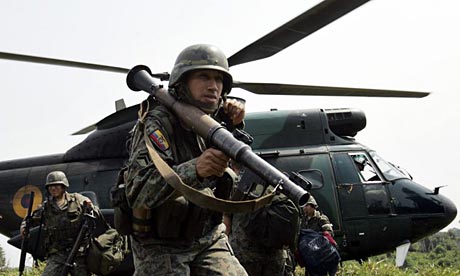Fed: Economy Has Weakened
WASHINGTON (AP) — The economy has weakened since the start of this year as shoppers turned even more cautious given the severe housing slump and painful credit crunch.
Manufacturers and other businesses, meanwhile, had to cope with skyrocketing prices for energy and other raw materials. The businesses' ability to pass along higher prices to their customers was mixed, according to the Federal Reserve's new snapshot of nationwide economic conditions released Wednesday. Oil hit jumped to a record of $104.52 a barrel.
Many economists fear that the country is teetering on the edge of a recession or is in one already.
"Economic growth has slowed since the beginning of the year," the Fed reported. Two-thirds of the Fed's 12 regions "cited softening or weakening in the pace of business activity, while the others referred to subdued, slow or modest growth," the Fed said.
The report suggested that persisting problems in the housing market and harder-to-get credit are affecting the behavior of individuals and businesses alike — making them think twice about spending and investing.
Wall Street investors took the news in stride. The Dow Jones industrials gained 41.19 points.
The nation's retail sector is feeling the strain.
"Reports on retail spending were generally downbeat," the Fed said.
The Fed said that retailers in a majority of regions described sales as "below plan, downbeat, weak or having softened." Clothing sales, for instance, were reported as soft in the regions of New York and Philadelphia and Richmond, Va. Several regions noted declines in sales of "big ticket" goods and home-related items, the Fed said. Auto sales nationwide were characterized as slow or sluggish, the Fed said.
Spending by consumers accounts for a big chunk of overall economic activity and thus plays a major role in determining whether the economy will survive the housing and credit crises or fall victim to those problems.
Economic growth slowed to a near halt in the final three months of last year, advancing at a pace of just 0.6 percent. Many economists believe growth in the current January-to-March quarter will be worse — a pace of around 0.4 percent. Some analysts, however, believe the economy is shrinking now.
To help shore up things, the Federal Reserve has been cutting a key interest rate since September. As the economic situation continued to falter, the Fed turned much more aggressive. It slashed rates by 1.25 percentage points in the span of just eight days in January — the biggest one-month rate reduction in a quarter century.
Fed Chairman Ben Bernanke signaled last week that the central bank stands ready to lower rates again at its next meeting, March 18.
Some worry that the country could be headed for a bout of stagflation — a dangerous mix of stagnant economic activity and stubborn inflation. But Bernanke, in his congressional appearance last week, said he didn't believe that was the case.
The Fed's report said that companies had to deal with rising energy prices, which translated into increased transportation and shipping costs. Companies also reported price increases for metals, petrochemicals and food.
However, "firms ability to pass along cost increases by raising selling prices varied," the Fed said.
The Boston region, for instance, noted that retailers were passing "some price increases on to customers and some manufacturers were raising selling prices to partially offset rising costs." Half the manufacturers in the Cleveland region had raised prices or added surcharges since the Fed's last report in mid-January. The Dallas and Atlanta regions reported some companies raised their prices but others were constrained by competitive pressures. The Kansas City region said retail prices were "mostly stable." The Chicago region said businesses — other than construction and retail — were passing along cost increases to their customers.
On the manufacturing front, activity was reported to be sluggish or to have slowed in about half of the Fed's regions, the survey said. Some areas continued to cite weak demand for products and equipment used for building and furnishing homes. All Fed regions, however, expressed "caution or concern" about their near-term business prospects, the Fed said.
A separate report from the Commerce Department showed factory orders fell 2.5 percent in January, the biggest decline in five months. Another report from the Institute for Supply Management said activity in the service sector shrank in February.
The Fed's report, meanwhile, continued to paint a bleak picture of housing.
Most areas continued to suffer sagging home sales and home prices.
The one exception: the Manhattan co-op and condo market, where prices were up 5 percent compared with a year ago, the Fed said.
For commercial real estate, there were signs of slowing in the markets for office and retail space in some regions.
On the labor market front, there was some "loosening" or slowing in hiring, the Fed said. The regions of New York, Philadelphia, St. Louis and Atlanta reported an increased prevalence of layoffs, reduction in workers' hours or hiring freezes, the Fed said.
The government on Friday releases the employment report for February. Many economists are predicting the unemployment rate climbed to 5 percent from 4.9 percent.
The Fed's survey is based on information supplied by the Fed's 12 regional banks. The information was collected before Feb. 25.



